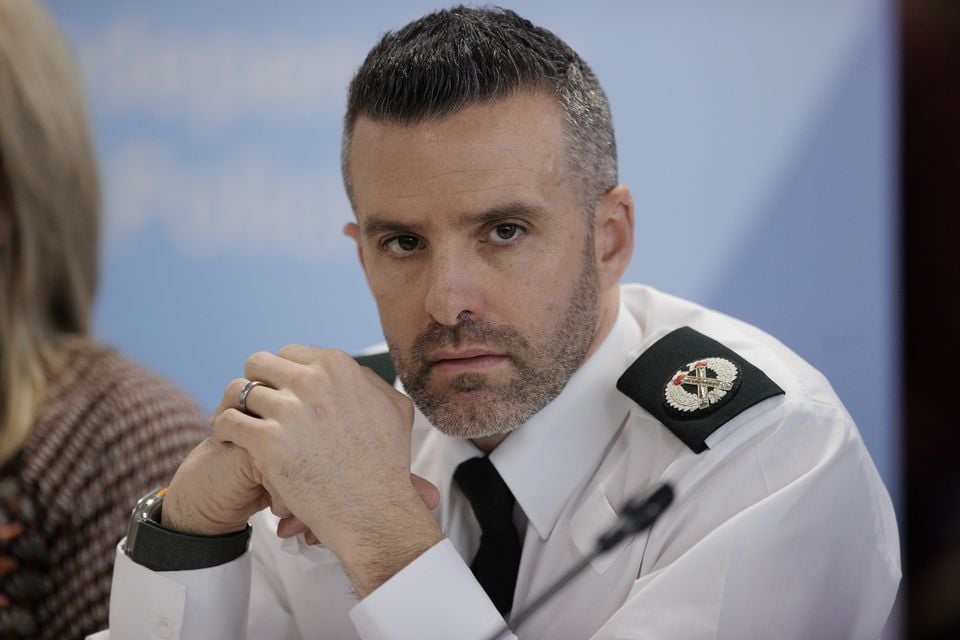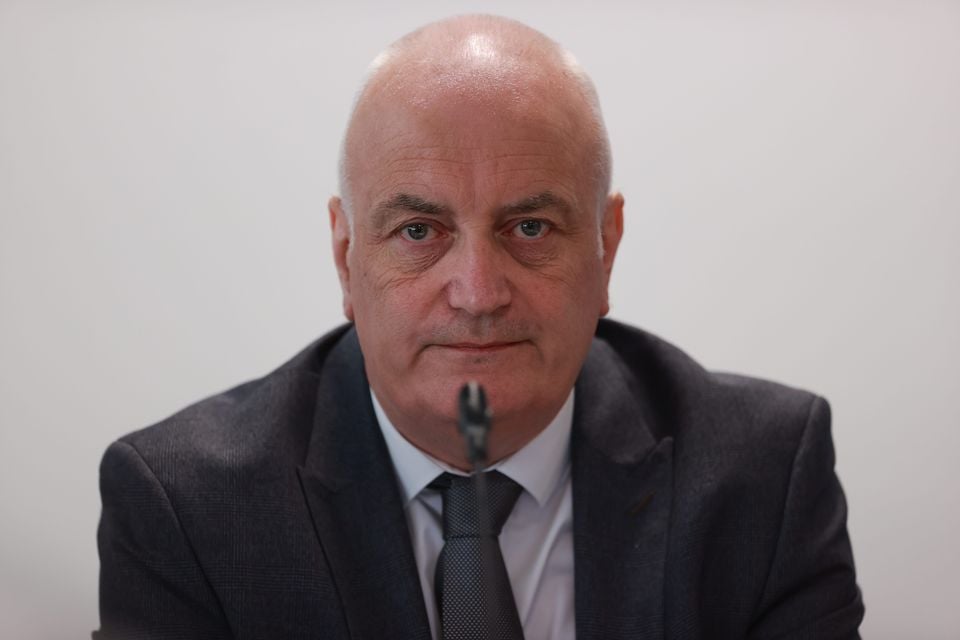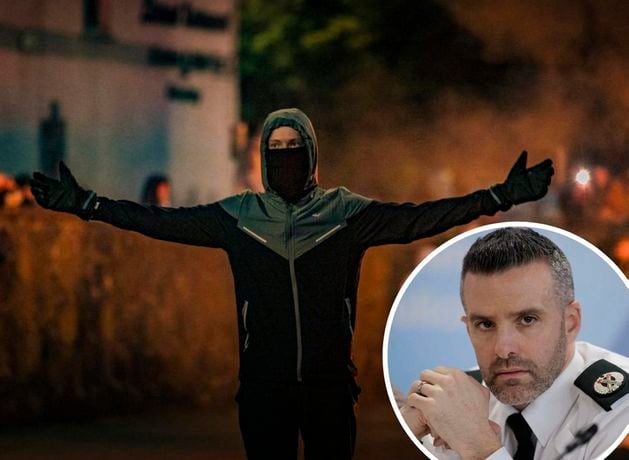DCC Bobby Singleton was speaking after a meeting yesterday with a DUP delegation – led by Policing Board member Trevor Clarke – which had suggested that the PSNI had dealt with riots in unionist areas more harshly than recent disorder in Londonderry.
The PSNI dismissed this, saying it will respond to unrest “using the most appropriate tactics”.
The DUP cohort also saw Policing Board members Keith Buchanan and Cheryl Brownlee, East Belfast MLA Joanne Bunting, who is also Chair of Stormont’s Justice Committee, and North Antrim MLA Paul Frew in attendance.
The delegation had voiced concern over “two-tier” policing in response to recent riots.

PSNI Deputy Chief Constable Bobby Singleton (Liam McBurney/PA)
Violence in Ballymena was sparked by an alleged sexual assault on June 7. Two 14-year-old boys, who spoke through a Romanian interpreter at Coleraine Magistrates Court, would later be charged with attempted rape.
Homes of a number of ethnic minorities in the area would then be targeted in three nights of racially-motivated violence in mainly unionist towns, with several houses burnt out.
Further later disorder occurred in Nailor’s Row, Derry, with youths throwing petrol bombs at police.
The Chief Constable described the disorder as “blatant sectarian violence”, although Derek Moore, from the North West Cultural Partnership [NWCP], said recently it was not sectarian in nature, but recreational.
He said at the time that he believes “young people growing up now think they missed out on the Troubles”, and they see rioting as “meaningless fun”. There was also an element of one-upmanship on social media in response to the violence elsewhere, he claimed.
Police fired one plastic baton round in Derry, but many more were fired in Ballymena, where the disorder was over three nights and more intense.

DUP MLA Trevor Clarke questioned the Infrastructure Minister on road safety programmes (Liam McBurney/PA)
Mr Clarke said the DUP had been “unequivocal that anyone engaging in public disorder, whether it be in Ballymena, Portadown, Larne or Londonderry, should be held fully accountable for their actions”.
“At the same time, everyone must be equal under the law and equally subject to it,” he continued.
“Where police officers are attacked, property damaged and homes attacked, the criminal justice response must be fair and consistent, irrespective of the motivation or background of those involved.
“In particular, the deployment of baton rounds (AEPs), should not be dictated by how such measures might be perceived by those on the receiving end, including those from republican or nationalist communities.
“Although the Chief Constable has indicated that the fear of complaints is no longer a factor in these decisions, we remain to be convinced that this has been played out on the ground during recent riots.”
A PSNI spokesperson said that Mr Singleton “assured those present that the PSNI will continue to respond to public disorder without fear or favour, using the most appropriate tactics to respond to the individual circumstances facing officers”.
“He told them that the police response to rioting has not and will never be affected by the motivation or the background of those criminals attacking officers and their community,” they said.
“He praised the courage and dedication of those police officers who responded to the disorder, 107 of whom were injured, and reiterated the Chief Constable’s determination that those involved in recent racist and sectarian riots will be investigated, arrested and brought before the courts where police will be seeking the strongest custodial sentences.”
